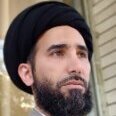Search the Community
Showing results for tags 'istitaah'.
-
Hajj is obligatory on a person once in his lifetime if the person is adult, sane, and his proceeding to Mecca for Hajj, should not be obliged to commit a Haram act, avoidance of which is more important than Hajj, nor should he be compelled to forsake an obligatory work which is more important than Hajj. He should be capable of performing Hajj, and this depends upon a number of factors: He should possess provisions as described in relevant books and means for transportation, if need be, or he should have enough money to buy them, or get tickets. He should be healthy and strong enough to go to Mecca and perform Hajj. There should be no obstacle on the way. If the way is closed, or if a person fears that he will lose his life, or honor, while on his way to Mecca, or he will be robbed of his property, it is not obligatory on him to perform Hajj. But if he can reach Mecca by another route, he should go to perform Hajj, even if the other route is a longer one. But that route should not be unusually longer. He should have enough time to perform all the acts of worship in Hajj. He should possess sufficient money to meet the expenses of his dependents whose maintenance is obligatory on him, like, his wife and children, as well as the expenses of those who have to be paid. On return from Hajj, he should have some means of livelihood, like, income from the property, farming, business, employment etc. so that he may not lead a life of hardship.

